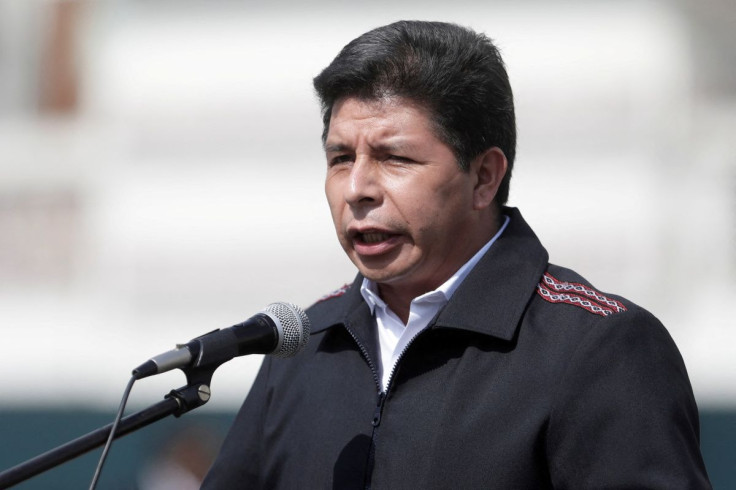Peru's Ruling Party Turns On Castillo; Calls For President To Step Down In 2023

Peruvian lawmakers from the ruling Peru Libre party on Thursday presented a bill to cut President Pedro Castillo's presidential term from five to two years, with general elections set for 2023, an unprecedented setback from within his own ranks.
Castillo, a leftist former school teacher and union leader, has presided over unprecedented political instability since taking office last July, cycling through four separate cabinets and surviving two impeachment attempts in just nine months in office.
More than 60% of Peruvians want him to resign and call general elections, according to polls. Both the Presidential and Congressional terms are supposed to end simultaneously in July 2026.
Under the proposal - which was signed by lawmakers including Waldemar Cerron, the brother of Peru Libre President Vladimir Cerron - Castillo and Congress would end both their terms in July 2023.
"Given that the disapproval of the President and Congress are both high and rising, one way to exit this institutional and political crisis is ... by calling for new general elections," the bill says. Peru Libre describes itself as a Marxist-Leninist party.
The bill was signed by eight Peru Libre lawmwakers out of a bloc of 33 lawmakers. Peru's unicameral Congress has 130 lawmakers.
Castillo has yet to address the bill, which comes as he is facing controversy yet again with a proposal to redraft the country's Constitution, a campaign promise he had said he would not act on.
Still, even current officials have hinted that cutting down Castillo's term would be a prudent decision. Prime Minister Anibal Torres said earlier this year that the government itself had considered presenting a bill to call for early elections, although the idea was dismissed.
Under Castillo, Peru's sol currency fell to record lows, although it has since bounced back. Business confidence has also fallen amid occasional far-left gestures such as calling for nationalizing the country's gas industry.
© Copyright Thomson Reuters 2024. All rights reserved.





















